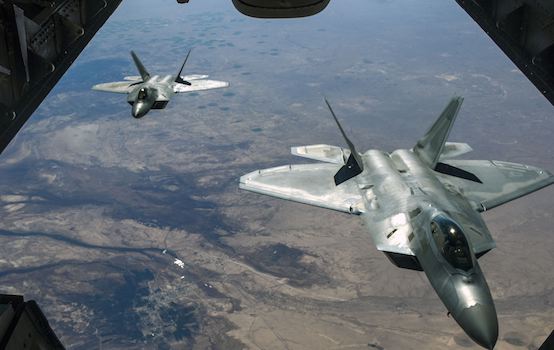The Bogus ‘Credibility’ Argument Rides Again

The Wall Street Journal editors ask a typically obtuse question in response to the aborted attack on Iran:
After Barack Obama failed to enforce his “red line” in Syria in 2013, adversaries soon took advantage. Vladimir Putin snatched Crimea from Ukraine and moved into Syria, China pushed further into the South China Sea, and Iran expanded its proxy wars in the Middle East. Will they draw similar license now from Mr. Trump’s stand-down?
Hawks have spun many absurd and unfounded myths about the consequences of the so-called “red line” episode from 2013, but perhaps the silliest of these is the idea that the U.S. encouraged other states to become more aggressive than they would have been otherwise because Obama chose not to bomb the Syrian government. Every tired hawkish cliche and canard has been on display in the tedious debate over this non-event, and we see them again in this editorial. Once again, we hear baseless complaints about supposedly lost “credibility.” There is the usual American-centric arrogance of thinking that the actions of all other states hinge on what the U.S. does or doesn’t do. There is the refusal to acknowledge the agency of other governments that will act according to their perceived interests no matter what the U.S. may or may not do. There is also the illogical and irrational mistake of treating everything that comes after a certain event as an effect of that event. All of our foreign policy debates have grown worse and dumber as a result of the endless whining about Obama’s decision not to violate the Constitution almost six years ago. Now all of the same painfully stupid arguments are back, and they have only gotten worse with repetition.
Russia “snatched” Crimea in response to the overthrow of the Ukrainian government. It is safe to say that this had nothing to do with an American decision not to attack the Syrian government six months before. Russia intervened later in Syria to prop up the Syrian government, and it escalated its involvement in Syria partly in response to the arms and assistance that the U.S. and its allies were providing to anti-regime forces. Had the U.S. bombed Syria in 2013, do we seriously believe that Russia would not have increased its support for the Syrian government? Russia would have almost certainly intervened sooner than it did in reaction to a U.S. attack. If the U.S. had bombed Syria in 2013, does anyone think that attacking yet another Russian client would have made Moscow less hostile to a “pro-Western” government in Kiev? Does anyone think that Russia would have been deterred from annexing Crimea because the U.S. bombed the Syrian government? Similarly, does anyone think that bombing Syria would have caused China to pursue its claims in the South China Sea less aggressively? Would Iran have been less assertive in its regional activities if their ally had come under attack? Everything we have seen from them in the last year suggests just the opposite.
I don’t think anyone honestly believes these silly “credibility” arguments. Our government’s willingness to initiate hostilities against a state that poses no real threat to us has nothing to do with its willingness to defend its treaty allies or itself against attack. No one is genuinely concerned that the U.S. won’t back up its commitments elsewhere in the world because of these episodes. What worries the hawks is the possibility that the U.S. is no longer launching as many of the unnecessary and illegal wars as they want. These “credibility” arguments are nonsense that hawks have used to try to blame Obama’s “inaction” for all sorts of bad consequences that had no connection to the aborted airstrikes on Syria. These claims are so simplistic and rely on such poor reasoning that it would embarrass schoolchildren to cite them in an argument, but because they reinforce hawkish assumptions about the use of force and U.S. “credibility” in the world they continue to be used.
Obama should never have made his ill-advised “red line” remarks, and Trump should not have ratcheted up tensions with Iran with sanctions, bluster, and threats. Both Obama and Trump ultimately made the right choice not to violate the Constitution and international law after threatening to do just that, but both presidents were responsible for getting themselves into the absurd situation in the first place. Presidents should avoid making empty threats, and the best way to avoid that trap is to avoid pursuing confrontational and aggressive policies that involve making threats against other states. Obama sort of understood that about Syria, but he could never fully extricate the U.S. once he had declared that Assad “must go.” Trump clearly doesn’t understand this about Iran, and he doesn’t see that the “maximum pressure” campaign is the reason that the U.S. and Iran have come so close to war.
Hawkish disappointment in Trump is revealing. For all of their unbelievable insistence that they don’t want war with Iran, they are now forced to acknowledge that waging war on Iran is the next step for the “maximum pressure” campaign. The editors write:
On Iran he has adopted a policy goal favored by hawkish Sen. Lindsey Graham but wants to use only the means of isolationist Sen. Rand Paul to achieve it.
The WSJ editors are essentially saying that if Trump wills the end desired by Iran hawks he must also will the means, and by that they mean he must be willing to attack Iran. Opponents of the nuclear deal have been seeking a war with Iran for years, and they thought they were about to get it. Trump may still give it to them, but in the meantime many Iran hawks have dropped the pretense that they don’t want war. Whenever hawks start talking about “credibility,” that is a tell that starting or joining a war is their goal. If Trump has any sense of political self-preservation, he won’t give them what they want.
Comments